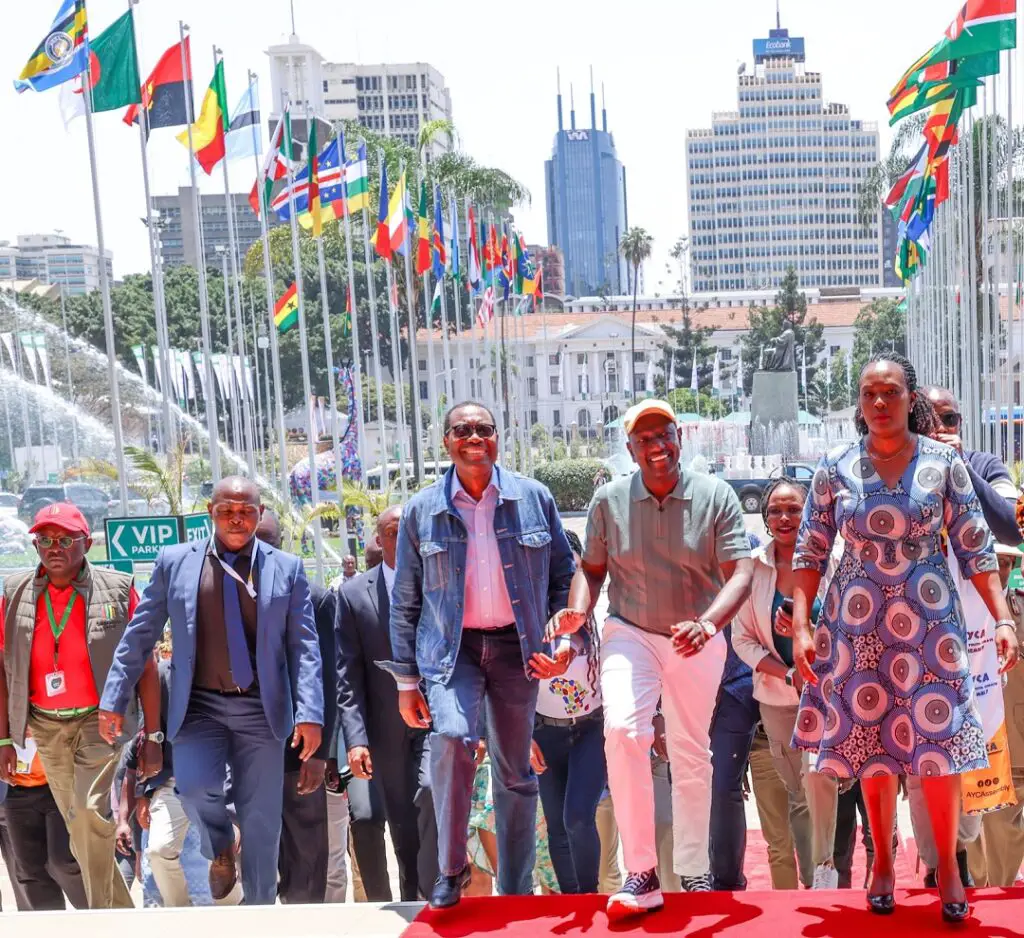- The Africa Climate Summit 2023 seeks to foster collaborative efforts in addressing the pressing climate crisis.
- Ahead of the summit, President William Ruto calls on the global north to live up to the climate action commitments.
- African government leaders are poised to commit to a Nairobi Declaration at the end of the meeting.
In a historic gathering of minds, an estimated 15,000 individuals, spanning government leaders, policymakers, civil society, the private sector, multilateral institutions, and youth from approximately 80 countries, have converged in Nairobi, Kenya, for the first-ever Africa Climate Summit.
The event has garnered attention from across the globe. Over 30 Heads of State have confirmed their attendance. Also attending will be the US Special Presidential Envoy for Climate John Kerry.
Africa Climate Summit 2023
The primary aim of the Africa Climate Summit 2023 is to foster collaborative efforts in addressing the pressing climate crisis. Earlier Mr. Kerry expressed his hope to “advance shared objectives on climate and clean energy.” His sentiment is echoed by the US Department of State, emphasizing the importance of international cooperation on climate issues.
Distinguished speakers at the summit include African Union Chairperson Azali Assoumani and the UN Resident Coordinator in Nairobi, Stephen Jackson. These leaders will contribute their insights to drive discussions on climate change solutions.
The urgent need for action stems from the grim reality of climate-fueled disasters wreaking havoc across African nations. Droughts, cyclones, and floods have caused widespread malnutrition, disease outbreaks, and infrastructure destruction.
African leaders appear determined to ensure critical conversations about climate change management take place on African soil and reflect their priorities. The Africa Climate Summit serves as a crucial precursor to the 28th United Nations Climate Change Conference, also known as COP28, scheduled to take place in Dubai.
The Nairobi event marks the first time the African Union (AU) has convened its leaders solely for climate change discussions. AU aims at establishing a clear collective vision for addressing climate challenges.
Key discussions at the summit will revolve around increasing funding for adaptation, addressing the global financial architecture, and managing burdensome debt loads.
Nairobi Declaration on Climate
“Africa is neither poor nor desperate. Africa is a wealthy continent that needs to properly profile and value its fortunes,” said President William Ruto. He was speaking on Sunday at the Kenyatta International Convention Centre, Nairobi, during the Africa Youth Climate Assembly 2023 ahead of the summit. The global north, he added, should live up to the climate action commitments.
Dr Ruto was accompanied by the President of the African Development Bank Group (AfDB) Akinwumi Adesina, Nairobi Governor Johnson Sakaja and Environment Cabinet Secretary Soipan Tuya among others.
Dr Adesina said AfDB was committed to reducing the continent’s vulnerability to climate change. “Our vision on climate change response is clear. We will keep accelerating green growth in Africa,” he added.
One of the primary goals of the summit is to secure significant investments in Africa’s climate adaptation efforts. Countries are keen on deploying improved weather forecasting systems. The Nairobi Declaration will outline the perspectives and demands of African nations with a view to attract new investments.
Mr. Kerry will showcase the US’ commitment through President Biden’s Emergency Plan for Adaptation and Resilience (PREPARE), aiming to assist 500 million people in developing countries, especially in Africa, to adapt to climate impacts.
The role of carbon market initiatives, including the Energy Transition Accelerator (ETA), in catalyzing private capital and accelerating the clean energy transition in developing countries will also be highlighted.
Read Also: Rising Temps, Falling Crops: Africa’s Ongoing Climate Change Challenge
Nairobi meeting hostage to Western interests
Despite its noble intentions, the summit is facing criticism from some quarters. Some civil society groups are accusing the summit agenda of being deeply influenced by Western interests. Organizers vehemently reject these allegations, emphasizing their commitment to the continent’s climate resilience.
African leaders have grown skeptical of high-income countries making promises at international forums but failing to follow through on emissions reductions and adaptation financing.
In response, the African Union, co-hosted by Kenya’s government, has taken the initiative to host this summit. The forum runs parallel to Africa Climate Week, an annual event hosted by the UN and others.
One pressing issue highlighted is the interest rates on loans. Interest rates from International financial institutions, such as the International Monetary Fund (IMF) and the World Bank, can often times hit 7 per cent. These high interest rates render the financing unrealistic for many African countries with lower growth rates. For example, Madagascar faces interest rates as high as 49 per cent, while Italy can borrow at just 2 per cent.
At the conclusion of the summit, African leaders are set to sign a Nairobi Declaration on climate change. The document will reflect their collective commitment to addressing the crisis. A draft declaration has circulated among African diplomatic missions for their input.
The Africa Climate Summit has garnered support from a wide range of actors. These include The Rockefeller Foundation, European governments, the Bill & Melinda Gates Foundation. The US Agency for International Development, the AfDB, and the Clinton Health Access Initiative are also backing it. The partnerships are indicative of the global community’s recognition of the urgency of addressing the climate crisis in Africa and beyond.











